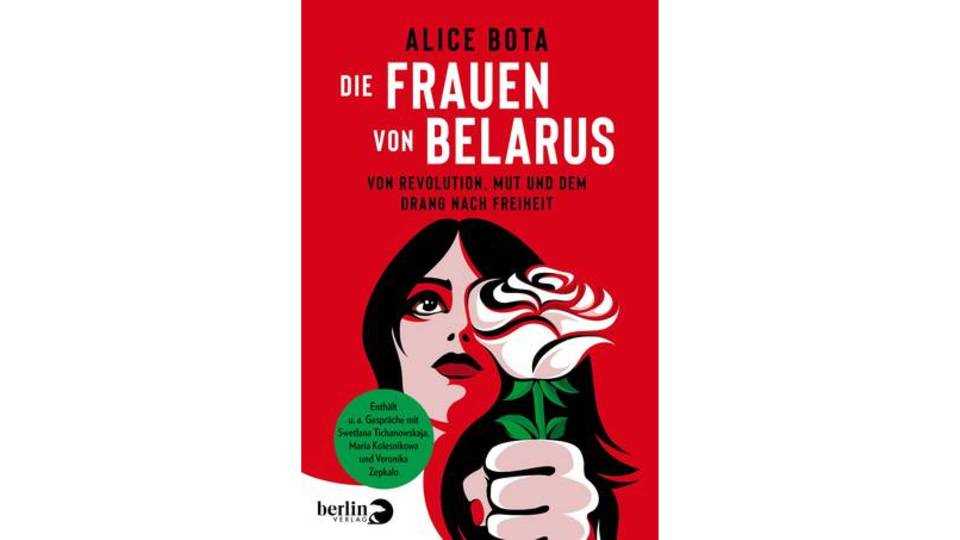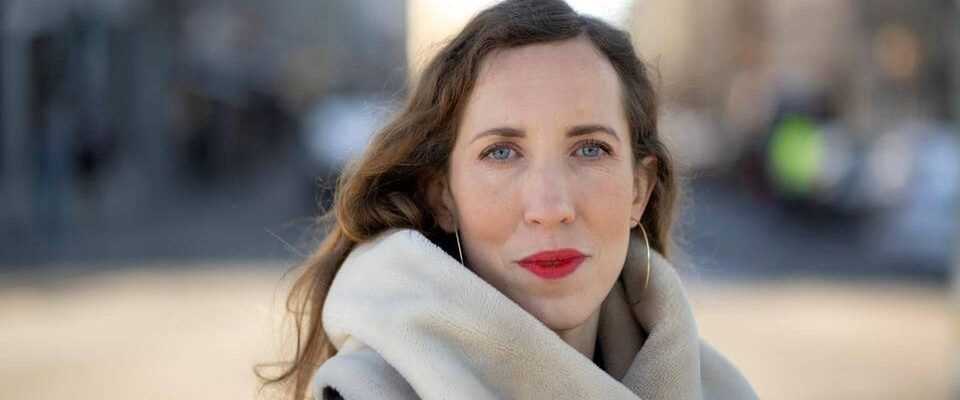Who are the three women who wanted to lead Belarus into a new future in the 2020 election – and who were violently oppressed? Journalist Alice Bota tells her story.
Around a year has passed: The presidential election in Belarus ended on August 9, 2020 and could have led the country into a new future. It took a day before the ruler Lukashenko announced that he had won the election with 80 percent. It took less than 24 hours for the result to be questioned internationally. Not a week before people took to the streets. On 8/16 the mass protests began, which then went through the international media.
For Alice Bota, the feeling of change in the country, which is only 1,000 kilometers away from Germany, began earlier. Social upsurges were part of everyday life for the correspondent for Eastern Europe. Even before the election, the journalist wrote a column in Die Zeit: “Watch out for these women,” was the title of the column.
These women were Svetlana Tichanowskaja, Maria Kolesnikowa and Veronika Zepkalo. The former ran as an opposition candidate, the latter supported her. None of them wanted to go into politics. And yet the housewife, the musician and the IT manager became hope for a new future for Belarus – and symbolic figures of a peaceful protest that was violently ended.
Only a few people know the background story of the trio in this country. It sounds “like a Netflix series,” says Alice Bota. She spoke to us about the extraordinary women of Belarus, with whom she has been in contact for a year and to whom she has now dedicated a book.
Three women unite, the one who is officially allowed to run is an inexperienced housewife who actually doesn’t want to get into politics. Sounds like a series.
Ms. Bota, why did you have the feeling, even before the election, that something special was happening in Belarus?
© Sebastian Bolesch
“I’m a correspondent for an area in which social upsurges are part of everyday journalism. But Belarus grabbed me straight away because it was such an extraordinary movement: three women unite, the one who is officially allowed to run is an inexperienced housewife who actually doesn’t want to go into politics. That sounds like a series. Even if you don’t have any connection to Belarus, many should be interested in it. “
But it wasn’t until after the election that people really cared about it, right?
“Yes, because what happened after that were these unbelievable protests: How many people took to the streets. And the unscrupulous and terrible violence with which the state apparatus acted against these people. That was something I have never seen before. I had the strong need to stay tuned and bring the events closer to the German audience. Something extraordinary happens in which women are so visible and play such a big role. “
When did you first hear from Svetlana Tichanovskaya?
“It was clear to me a good six weeks beforehand that the events could not be understood with the usual political science standards. Because Svetlana Tichanowskaya is not a natural opposition candidate, she has become a politician against her will. The special thing was already evident at the rallies before the election: tens of thousands came, the atmosphere was incredible. It was so peaceful. Very special. Very personal. These women tried to get close to their constituents. It is not as if there was no opposition movement in Belarus before. But there has never been such a departure. “
They were actually political competitors, but they realized that they had to unite because they had a common goal: to finally bring about an alternative.
Can you tell us briefly how these three women found each other in the first place.
“Svetlana Tichanovskaya only entered politics because her husband was arrested. He wanted to run. She was at home with the children and was actually an English teacher. Out of love and respect, she decided to compete for him. That was the first big decision in their relationship that she made alone. Without talking to her husband about it. She didn’t expect to be accepted … and lo and behold, the regime allowed her. She saw some housewife in her who was not taken seriously. When everything took its course, there were several points at which she wanted to give up.
Two other women came to her aid: Veronika Zepkalo, an IT manager, whose husband also wanted to run and received threats that he would be arrested. Then she said to him: You are leaving the country with the children, I will continue.
The third in the league, Maria Kolesnikowa, has always been the most political of them all. It may sound surprising that a flautist should go into politics. She had not pursued a political career herself, but she was brought on the staff by the third candidate, who is in prison and has just been sentenced to 14 years in a camp. When he was arrested over a year ago, she also took over. “
The story of women is very similar: three women who stood for men, who were arrested or had to flee.
“Yes, exactly. The three women represented different candidates – they all stood in for men. Then they met and within 15 minutes they agreed on key goals. They were actually political competitors, but they realized that they had to unite because they had a common goal: namely to finally bring about an alternative. “

© Piper Verlag
If you put it that way, it really sounds like a Hollywood film, women as the three hopefuls for a new society. When did the mood in the country begin to change?
“Shortly after the election, I had a commissioner on the phone who had helped fake the election. This person burst into tears and told me everything. I was still sure that the balance of power would tip and everything would be different now. I believe that this feeling was felt by many people who then became aware of their own strength and understood how many they were and how humble it was what they asked for. They didn’t want a bloody revolution. They just wanted their voice to count and Lukashenko to make way for something new. I thought this peaceful protest could not be recaptured. And then? Then came the turning point for me personally when Roman Bondarenko died in November. “
Is he one of the people who had to pay with their lives for the protests?
“That was an artist, a young man, 31 years old. He lived in the Place of Change, where the neighbors met and drank tea. Roman gave painting lessons to the children and was very involved. Again and again white-red-white ribbons were tied in the backyard (a symbol of the peaceful protest against Lukashenko, editor’s note), and someone came over and over from the city and removed them. One day when bows were being removed again, Roman went down. Masked men took him away and after two or three hours at the police station he reappeared in a hospital emergency room. He died, succumbed to his injuries. “
Do you know what happened to him?
“A journalist published the medical examination report. He documented the serious injuries. Investigators said he was a drunk who got into trouble and fought. In the test report it is documented that he had 0.0 per mil. The attending doctor who passed the report and the journalist were later sentenced to prison terms. As a result, the Place of Change became a kind of pilgrimage site for people from all over the country who came to mourn, lay flowers and candles. People were angry, sad and at the same time had the feeling that everyone could be next. This quiet place has been cleared. With stun grenades, tear gas and special forces. When that happened, I knew something was going to tip. It will be a very long fight. “
The only thing that can keep people halfway from torture is attention. Solidarity. Over and over again.
And that continues to this day. How are women doing right now?
“Svetlana Tichanovskaya was forced out of the country. She is wanted by the regime as a terrorist. She won’t tell her whole story until her husband is free. She has built up a staff in the Lithuanian capital Vilnius and continues to fight from there as the leader of a free Belarus, as she calls herself. “
And the other two?
“Maria Kolesnikova refused to leave the country. She was abducted in the middle of the street in September last year. This is quite common in Belarus. She had been driven to the border with Ukraine and told that if she were not willing to cooperate, she would either be dismembered or put in a prison camp for many years. When she was in the car, she discovered her passport. Took it and tore it up, climbed out the window in the back seat, and marched back towards Belarus. She was arrested and has been in jail since then, awaiting trial. The third, Veronika Zepkalo, left the country herself on election day to be with her family. They are now living in exile in Riga and are recognized as political refugees. “
In Germany at the moment you only notice a few of it again and again, and it happens almost next door. Can you do something in this country? What do you think of social media campaigns that happen over and over again?
“Everyone I’ve spoken to is always incredibly happy about any interest. It’s an incredible humility and gratitude that you don’t forget it. Attention is the only thing that protects you, especially those who are in jail. The only thing that can save people halfway from torture is attention. Solidarity. Over and over again. “
Alice Bota’s “Women of Belarus” will be published by Berlin Verlag on July 29th
